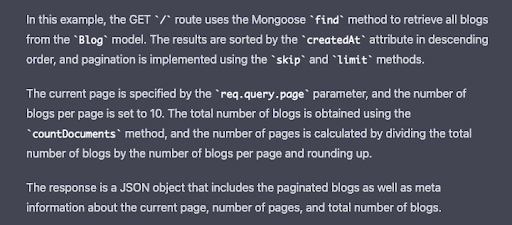Can ChatGPT Replace Developers? Exploring AI's Impact on the Workforce
ChatGPT has been gaining a lot of traction recently and it deserves all the recognition it is getting. Artificial intelligence (AI) has advanced significantly in recent years and has had a substantial impact on a number of industries. AI systems are being utilized to automate operations, streamline workflows, and increase efficiency across industries, from manufacturing to customer service.
Concern regarding AI's effects on the workforce, particularly in the software development[1] sector, is growing as technology continues to advance. Many people are wondering if the advent of cutting-edge language generation models like ChatGPT would lead to the eventual replacement of human professionals like software developers.
In this blog, we will be exploring the capabilities and limitations of ChatGPT in its current state, exploring the applications of ChatGPT and how it can help developers across the world, and most importantly, answering the question “Will ChatGPT replace developers?”.
Before we get into that, let’s understand what exactly is ChatGPT.
What is ChatGPT?
ChatGPT is an advanced Artificial intelligence model that is capable of generating human-like text based on the prompts that it is given. ChatGPT is a variant of the GPT-3[2], Generative Pretrained Transformer 3 developed by OpenAI. The model has been trained on an extremely large dataset of text from the internet, and it has the ability to generate text on a wide range of topics, from answering trivia questions to solving exams that have been recognized as difficult entry barriers for professionals.
Because it is trained on textual data, it is also capable of solving coding problems and providing code snippets for developers in almost any programming language!
Let’s take a look at the uses of ChatGPT when it comes to software development.
Uses of ChatGPT for Software Development
Code Generation
ChatGPT is not only capable of generating code in almost all the programming languages that you can think of, but also, creating entire projects from scratch if the right prompts are given.
Let’s give ChatGPT a prompt where it has to create a NodeJS, Express API that fetches blog records using Mongoose with pagination.
This is the code output it provides:
const express = require('express');
const router = express.Router();
const Blog = require('../models/Blog');
router.get('/', async (req, res) => {
const perPage = 10;
const page = req.query.page || 1;
const blogs = await Blog.find()
.sort({ createdAt: -1 })
.skip((perPage * page) - perPage)
.limit(perPage);
const count = await Blog.countDocuments();
res.json({
data: blogs,
meta: {
currentPage: page,
perPage,
pages: Math.ceil(count / perPage),
total: count,
},
});
});
module.exports = router;
It also provided some explanation along with the code:
Bug Solving / Output Finder
Along with producing output for a code sample, ChatGPT is also capable of identifying bugs in a given piece of code.
Like & Share this post
0 (0 Reviews) rat now
Subscribe to our newsletter
Receive the latests news, curated posts and highlights from us. We'll never spam, we promise.
Recent Articles

Hello, We're content writer who is fascinated by content fashion, celebrity and lifestyle. We helps clients bring the right content to the right people.
Explore Topics
- Celebration (20)
- Culture (10)
- Fashion (05)
- Inspiration (07)
- Lifestyle (50)
- Politic (0)


